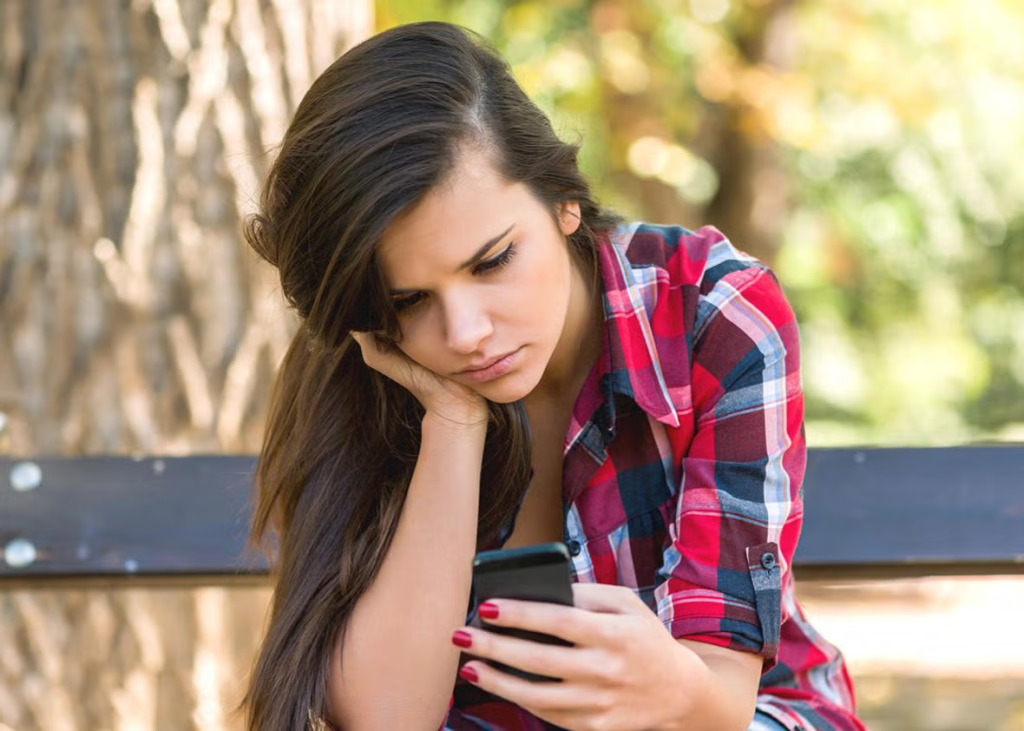Over the past few years, it 's been hard to avoid the conclusion that smartphones, and in particular the use of social media such as Instagram and TikTok, have caused an epidemic of mental health and body image problems among young people, and in particular teenaged girls — problems that in some cases have led to suicide. A recent piece in The New Yorker is just the latest in a long line of such reports: in it, writer Andrew Solomon interviews distraught parents and relatives of a number of young people who have killed themselves, and in every case the culprit seems to be their excessive use of smartphones and specifically their use of social media, which many of those involved seem to believe caused or exacerbated their childrens' anxiety and depression.
One of the girls who died by suicide spent all her time on Instagram and was convinced she was ugly and no one would ever love her, and it turned out that her feed was full of people talking about eating disorders and suicide. Her mother says that after reading about Frances Haugen, a whistleblower who leaked thousands of internal Facebook documents about the harms of social media, she became convinced that Instagram played a role in her daughter's death, and decided to sue Meta. The article goes on to talk about rise in the rate of deaths by suicide between age 10 and age 24 in the US since 2007, and the fact that 53 percent of Americans believe that social media is responsible. And it talks about how social media produces a dopamine effect similar to nicotine or cocaine, and explains that this is why some people get addicted to using social media.
Before I go any further, there's no question that the stories in the New Yorker piece are heart-wrenching. Solomon writes about visiting the childhood bedrooms of boys and girls in their teens or early twenties who struggled with anxiety and depression and in the end chose to kill themselves, and their parents tell him about the guilt they feel over things they could have done. Only a robot would be able to listen to those stories and not feel for those parents and those families, and I am not trying to downplay or minimize that. But after pages and pages of these stories — more than three quarters of the way through the article — comes what I think is an important point, when Solomon writes that "research has failed to demonstrate any definite causal link" between smartphone or social-media use and depression.
Haidt often cites research by Jean Twenge, a psychologist at San Diego State, to support his claims of a causal link between smartphone use and anxiety in teens. But in a study published in Nature, Przybylski tried to reproduce some of her findings and was unable to show more than a mild correlation. In fact, he told Platformer, the average correlation between screen time and well-being "was analogous to the correlation between wearing glasses and well being," and therefore might just be a rounding error or statistical anomaly. The impact of smartphone use appears to be more or less the same as the impact of eating potatoes on a regular basis.
A meta-analysis of 226 studies in 2022 involving more than a quarter of a million participants found that the association between social media and feelings of well-being was "indistinguishable from zero." Hardly the kind of smoking gun evidence implied by Jonathan Haidt's books and magazine articles.

The moral panic over social media and teen depression
Hi everyone! Mathew Ingram here. This is The Torment Nexus (you can find out more about me and this newsletter — and why I chose to call it that — in my inaugural post.) Since this is only the fourth edition of the newsletter, I am still working out some bugs, so
torment-nexus.mathewingram.com
There's been a lot of talk about how social media is very harmful, especially Instagram/TikTok with young women. Meta had its own internal research on this. But there's been pushback to this. Specifically, peer reviewed studies show lack of casual links and replication effects.
In a recent episode of If Books Could Kill, a podcast that looks into this. They made some impressive arguments. Basically, we screen more for mental health these days. Much better than the 2000s and earlier.
I'm not a parent, but I do think smartphones limitations are wise, but for other things, education, which has more proof. I support phone bans during class time.
Personally, a senior citizen on these apps lol, I enjoy them. I curate my feeds, I stay in touch with friends. I like them. I do take breaks and also redo my algos when I get too much negative crap, but I enjoy them. I learn a lot from TikTok for example.
But I'm not a teen girl, so I have no perspective here. However, I found the social media is responsible for all mental health ills to be suspect. There are many reasons that affect mental health, including home life.
Last edited:

